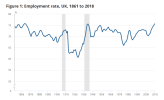From someone who works in IT, some aspects of tech now are much better, even from 10 years ago - for its faults, Windows 10 (not had much experience of 11 yet, but from this aspect I believe it similar) is a lot easier for setting up (lots of drivers install automatically, you don't have piles of disks, and by extension, with the right hardware, it can be fairly speedy) and update (I remember the days of installing Windows 7 from "day zero" and then having hundreds of updates to install - with Windows 10 they're cumulative so far less "catch up" needed)
It has brought its own challenges though (and arguably some useless tech which could prove to be a security hole)
I remember when people were complaining about the end of XP and there was nothing wrong with it etc. and even aside from the many fundamental security issues it had, it was such a pain to install since it didn't even have native SATA support then of course you needed the driver CD or get all the drivers downloaded and slowly work through everything in device manager to get rid of the little exclamation marks. Win98 was even worse without even a partition manager whereas now I've been able to talk a non-tech person over the phone to install Windows and get it working.
Going up the other end there's some fantastic modern technology which I still marvel at, I have a little mini PC about the size of a couple of DVD cases which has ten cores (and another 10 from hypethreading), 64GB ram and 5TB SSD storage running ESXi so it can run complex PC, server and networking setups all on its own. I was wanting to work on testing some firewall configurations recently and could easily spin up a new firewall management center, add a couple of firewalls, cluster them then stick in a test Win11 PC then test taking one offline, building a new one etc. At work we can support far more servers than we've ever had before but with far fewer physical servers all with failover and independences from the hardware compared to in the 2000s even just to get a four core system it needed pretty hefty servers.
I don't miss dialup at all either which felt super slow at the time even without broadband as well as the hassle of tying up the phone and the long connection sequence to get connected and how easily connections could be dropped.
The only newer technology I'm less keen on is cars and currently have a 2011 Mazda which is a nice balance between decent features but still straightforward so no e-brake, lane departure warning or auto stop/start systems and it still has physical controls for everything with no touchscreens.

